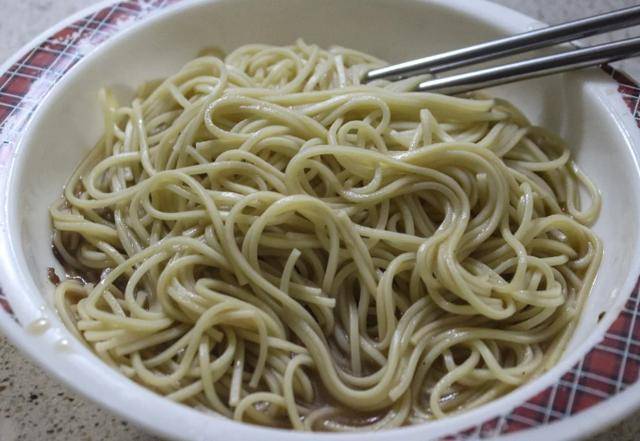Noodles, as one of the traditional staple foods in China, are loved by the vast majority of people. Whether it’s the hand-pulled noodles or knife-cut noodles from the north, or the Yangchun noodles and Dan Dan noodles from the south, they have won the favor of diners with their unique texture and rich variety.
However, in recent years, discussions about the impact of noodles on health have been intensifying. So, is loving noodles beneficial or harmful to health? Today, let’s hear what the doctors have to say.
Case Sharing:
Mr. Li, 58 years old, is from the north and enjoys eating wheat-based foods. Among various wheat dishes, Mr. Li especially loves noodles, hardly missing them in any of his three daily meals, maintaining this eating habit for many years.
This relatively monotonous dietary habit has led to some health issues for Mr. Li. Recently, he was diagnosed with diabetes, and after understanding his eating habits, the doctor identified that a diet rich in only carbohydrates was the culprit.
After learning about Mr. Li’s situation, many people believe that eating noodles frequently is unhealthy. So, is eating noodles for a long time beneficial or harmful to health? Let’s listen to what the doctors have to say.
Understanding the Nutritional Value of Noodles
Noodles contain a certain amount of protein, and are a major source of vitamins and minerals, including essential B vitamins like B1, B2, B3, B8, and B9, as well as calcium, iron, phosphorus, magnesium, potassium, and copper—elements necessary for the body.
Noodles are rich in carbohydrates, which can provide sufficient energy.
Noodles are high in copper, an essential trace nutrient for human health, significantly impacting the development and function of blood, central nervous system, immune system, as well as hair, skin, bone tissue, brain, liver, and heart.
Is long-term noodle consumption beneficial or harmful to health? Let’s hear what the doctors have to say.
1. Leading to Malnutrition
The nutritional components in noodles are primarily starch, with a small amount of vitamins. However, starch only provides carbohydrates for energy needs.
Essential nutrients such as fats, vitamins, and proteins cannot be obtained merely from eating noodles. Imagine someone who eats only one type of food; even if they occasionally add other vegetables, can such a diet ensure balanced nutrition? Therefore, long-term consumption of noodles can lead to malnutrition.
2. Inducing Obesity
This is mostly due to the high starch content in noodles. Starch can quickly convert to glucose in the body, providing energy, while part of it converts into fat and protein stored within the body.
The life activities of the body primarily rely on blood sugar, fats, and proteins, which are hard to absorb and digest. Thus, frequently eating noodles can lead to obesity, having a negative impact on fat loss and weight management.
3. Damaging the Esophagus
In daily life, many people enjoy eating very hot foods, especially during winter, making this phenomenon more common. When eating noodles, people often eat them directly as soon as they are served. However, frequently consuming very hot foods can easily irritate the stomach, and in severe cases, may even directly harm the esophagus.
4. Decreased Intake of Whole Grains
Since noodles are a finely processed food item, regular consumption may lead to deficiencies in B vitamins and various nutrients.
Therefore, when eating noodles, it is advisable to choose whole grain noodles or pair them with other whole grains. Additionally, when consuming noodles, it is best to avoid adding oils and other various seasonings.


